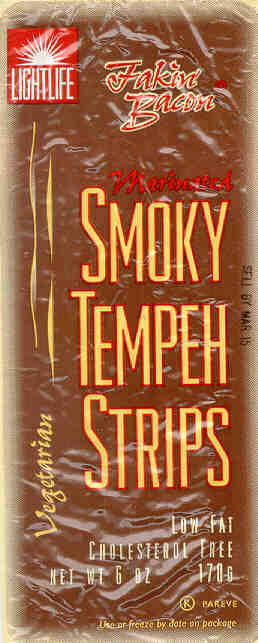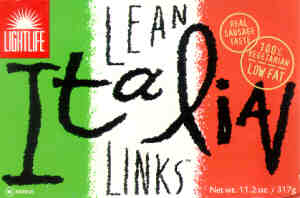 MATURE WITHDRAWAL
MATURE WITHDRAWAL
Park Slope swarmed with costumes on Halloween night, with kids dressing as corpses and lesbians dressing as Wiccans, all extorting candy from hapless storeowners. The General Meeting was less of a party. So few came that the chair was extra chatty to fill the awkard silences. She urged the thin crowd to sit closer to the front: "We won't bite; I promise I won't let anyone bite each other."
The coordinators' financial report was upbeat: thanks to the pension fund's strong performance, the coop needn't add cash to the staff's retirement huckle. Another coordinator described how around more than a tenth of the coop membership had been trained to use the "new" checkout scanners, which are finally operating since their purchase almost two years ago. (Tonight, alpha coordinator Joe Holtz said they were purchased "at least" a year ago.)
Unfortunately, checkout has now slowed so badly that lines extend into the produce aisle. The learning curve is slow for coop members, who work only once every four weeks, so training is still needed. Also, scanning can be slower than manual checkout since the former requires navigation through a data-entry menu. But scanners do mean great inventory tracking. The new itemized register tapes also force greater accuracy from checkout workers sleeping through their shifts.
Coop president Eric Schneider announced that we'd lost, as expected, an appeal against too-high property taxes, and that such tax reduction usually takes place during a second appeal, to follow. He also said that since an "illusory bullshit amount" is levied on property to begin with, we were requesting a smaller illusory amount.
He also said that the Building Next Door loan drive raffle of a $750 bicycle was a "cool idea, but unfortunately it's illegal." Apparently only nonprofits are allowed to do this, since it's a form of gambling. So now all coop members will be offered a chance to win. No word on whether those who have already loaned money, in hope of a better chance at winning, will be offered their money back.
"You all insisted that I not abandon the ship," grumped board member Electromagnetic Israel over his planned nonprofit coop foundation, on which no one but him wanted to work. He introduced another member who, with Israel, discussed the potential projects and matching funds. The other member pleaded for others' involvement, warning, "I have the energy now, but it's gonna stop." A foundation could accept tax-free donations from members and from other foundations, then run projects like cooking or alternative-health classes in the coop, with the foundation paying the coop a fee for that privilege.
A Renovation Committee member called such foundation work "a key thing to do for the coop's long-term future" in contributing to the neighborhood (called the "community," of course). Israel closed by suggesting that the foundation train others to create coops: "Let there be a thousand Park Slope Food Coops."
 The Renovation Committee reported that the Building Next Door contract is currently "in lawyer land" and should be signed within a week, after which the committee would vote on it. (Approval is inevitable, since rejection would waste years of planning and would condemn the new building to white-elephant status.) The bank has given preliminary loan approval, but also waits to see the contract. "Hold on to your seats, we're going to be tearing things apart" for a year, the committee rep said cheerfully. Israel asked what we would pay for loan interest. Holtz happily drowned him in speculation about the prime rate, balloons, and the yet unknown pace at which we'd want to repay the principal.
The Renovation Committee reported that the Building Next Door contract is currently "in lawyer land" and should be signed within a week, after which the committee would vote on it. (Approval is inevitable, since rejection would waste years of planning and would condemn the new building to white-elephant status.) The bank has given preliminary loan approval, but also waits to see the contract. "Hold on to your seats, we're going to be tearing things apart" for a year, the committee rep said cheerfully. Israel asked what we would pay for loan interest. Holtz happily drowned him in speculation about the prime rate, balloons, and the yet unknown pace at which we'd want to repay the principal.
Secretary Riana McLoughlin complained that we hadn't addressed issues tabled since the Renovation Committee had presented the GM with the current plan as "a bit of an ultimatum" a few meetings before. At that past meeting we'd debated union construction labor to death, but had had no time to wrangle over the fiscal or corporate aspects of the bank loan. There had been no formal tabling of discussion, though, and tonight the committee member suggested that bank deadlines had continued to leave no time for more talk. "We're on our fourth or fifth extension," added Holtz.
General Meetings were once agenda-less slugfests in which you just proposed something after bringing your friends to vote on it. Several years ago the GM created an Agenda Committee to schedule proposals. You can still pack the meeting with allies, but now agenda items are publicized in advance and are more likely to get a fair hearing, all thanks to this committee. Four of its members stood for reelection at this new GM, and we approved all four after checking off ballots which, though scrawled in longhand, were still more readable than those of Florida's Palm Beach County.
 More contentious was tonight's second item, a proposal to create workslot credit to encourage members to write in-depth articles for the coop newspaper, the Linewaiter's Gazette, without first having to be Gazette reporters. The proposer said that new writers were needed because "sometimes [reporters] writing about coop business seem to have a personal slant," and that new writers should have the encouragement and reward of workslot credit, which reporters already receive.
More contentious was tonight's second item, a proposal to create workslot credit to encourage members to write in-depth articles for the coop newspaper, the Linewaiter's Gazette, without first having to be Gazette reporters. The proposer said that new writers were needed because "sometimes [reporters] writing about coop business seem to have a personal slant," and that new writers should have the encouragement and reward of workslot credit, which reporters already receive.
Gazette staffers had come out in force for this meeting: the first speaker to the proposal was even the Gazette chief editor, though she did not identify herself as such till later. The editors got the proposer to say that he wasn't calling the staff biased, and they defended their work as professional and his proposal as "cumbersome." The proposer admitted that his plan was "rather thin" and he withdrew it, to the delight of everyone. The chair practically celebrated this time saver, talking about how good it was just to discuss the issue.
There was no more agenda, thanks to meeting regular Andy Kaufman withdrawing his item and not bothering to show up. But Gazette discussion continued even in the meeting wrap-up. The proposer said he hadn't intended the "slight air of criticism" that he said he now saw in his proposal, and the lead editor said the staff would discuss how to expand article-writing opportunities for coop members. A coordinator gushed over how General Meeting discussion could cause even an item proposer to change his mind, and suggested that some issues could be brought to the meeting first as a discussion item, and then made into a votable proposal later.
![]() Next dispatch.
Next dispatch.
![]() Previous dispatch.
Previous dispatch.
![]() Back to list of dispatches.
Back to list of dispatches.